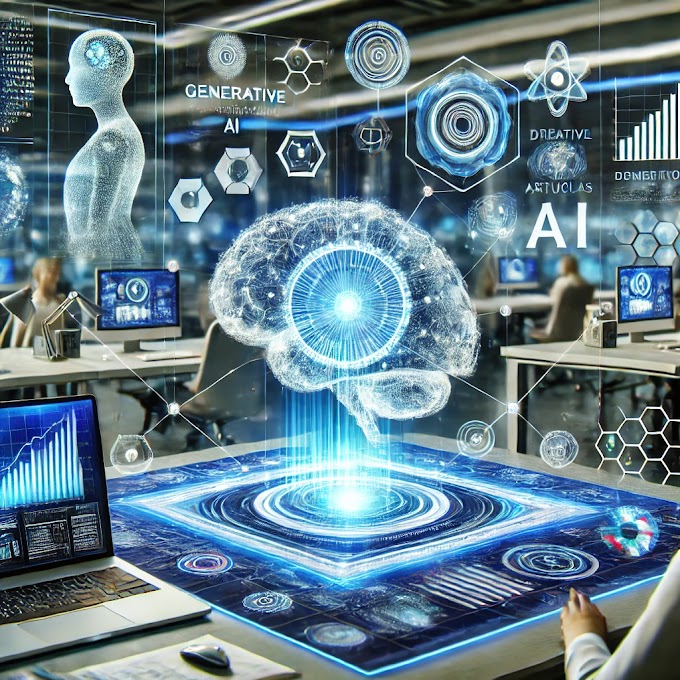Artificial Intelligence (AI) is Automating an industries at a fast rate. Automation has always been a component of technological progress, but AI can now perform tasks previously left to humans. This has raised questions on whether job replacement by AI is good or bad, when it will occur, and which jobs are most vulnerable.
In this blog, we’ll explore these questions and more, breaking down the impact of AI on employment, its advantages and disadvantages, and what the future holds.
Why AI Replacing Jobs is Good
On the face of it, AI taking over people's jobs looks frightening. There are, however, bright sides to this change that can't be overlooked:
- Improved Efficiency and Productivity: Automation using AI can execute tasks faster and with better precision than human beings, minimizing mistakes and boosting overall productivity. Sectors such as manufacturing, finance, and medicine have already gained from AI-based processes.
- Elimination of Repetitive Tasks: Most work consists of repetitive, unexciting tasks that do not involve critical thinking or creativity. AI can do such work, and humans can do more challenging and significant tasks.
- Cost Savings for Businesses: Firms cut costs by adopting AI systems, lowering the cost of labor and raising profitability. This can result in cheaper products for customers.
- Establishment of New Positions: While AI takes away certain jobs, it also introduces new ones. For instance, the development, maintenance, and ethical governance of AI demand human skills, resulting in new professions.
When Will AI Begin Replacing Jobs?
AI is already automating work in some sectors, but its full extent will be seen in the coming decades.
- Short-Term (Present – 5 years): AI is now automating elementary tasks in manufacturing, data entry, and customer service. AI tools and chatbots are already diminishing the necessity of human intervention for basic support activities.
- Mid-Term (5 – 15 years): More sophisticated tasks, such as accounting, document checking, and even basic medical diagnoses, will become increasingly automated.
- Long-Term (15+ years): Advanced AI may displace highly skilled occupations in engineering, computer programming, and even creative fields such as writing or design.
The timeline depends on technological advancements, regulations, and how businesses adopt AI.
AI Replacing Jobs: Pros and Cons
Advantages of AI Taking Over Jobs
- ✅ Higher Efficiency: AI can process vast amounts of data instantly, improving decision-making.
- ✅ 24/7 Availability: Because AI does not need to rest, there are 24/7 operations.
- ✅ Human Error Reduction: AI reduces errors in sectors such as finance, healthcare, and transportation.
- ✅ Creation of Jobs in AI Sectors: New positions in AI development, maintenance, and governance are created.
- ✅ Enhanced Safety: AI-powered robots reduce risks in dangerous jobs like mining and construction.
Downsides of AI Taking Over Jobs
- ❌ Job Losses: Millions of individuals could lose their jobs as automation increases.
- ❌ Skill Gaps: Employees will lack the relevant skills to make a shift into AI jobs.
- ❌ Bias and Ethical Problems: AI models are prone to carry forward biases, thus discriminating during hiring and decision-making processes.
- ❌ Economic Disparity: Wealth could concentrate among tech companies, widening the rich-poor gap.
- ❌ Lack of Human Touch: AI is not capable of completely substituting human intuition, creativity, and emotional intelligence.
What Kind of Jobs Will AI Take Over?
- Data Entry & Clerical Positions
- Customer Support Representatives
- Retail and Cashier Positions
- Manufacturing & Assembly Line Workers
- Fundamental Bookkeeping & Accounting
- Transportation & Delivery Positions
- Market Research & Data Analysis
- Legal and Paralegal Careers
- Content Writing & Journalism
Will AI Replace All Jobs?
No, AI won't replace all jobs. Numerous occupations demand human creativity, emotional intelligence, and sophisticated decision-making, which AI can't imitate. Occupations that include:
- Critical Thinking (doctors, lawyers, engineers)
- Creative Expression (e.g., artists, musicians, designers)
- Human Interaction (e.g., teachers, psychologists, social workers)
are less likely to be entirely automated. Rather, AI is likely to aid these professionals instead of replacing them.
How Can Workers Prepare for AI-Driven Changes?
- ✅ Acquire AI-related competencies such as coding, data analysis, and machine learning.
- ✅ Cultivate soft skills such as communication, leadership, and critical thinking.
- ✅ Stay updated on industry trends to understand how AI is evolving in their field.
- ✅ Explore career transitions into AI-immune sectors such as health, education, and the creative economy.
Conclusion
AI displacing jobs is an opportunity and a challenge. While automation will certainly shake up numerous industries, it also creates new career opportunities and technological innovations. Rather than fearing AI, employees should adjust, retrain, and welcome the changes that AI introduces to the labor market.
Governments, corporations, and schools need to collaborate to make a seamless transition into this AI age. Through innovation and responsible use of AI, we can build a future where humans and AI complement each other for the greater good of society.
FAQs
- Will all jobs be replaced by AI in the future? No, AI will primarily substitute repetitive and rule-based tasks. Tasks that need creativity, emotional intelligence, and complex problem-solving will continue to require human beings.
- Which sectors are impacted most by AI automation? Manufacturing, customer service, finance, transportation, and retail are the sectors experiencing the greatest effect of AI automation.
- What are the jobs protected from AI automation? Healthcare, educational, creative professions, and those involving human interaction are less likely to be automated.
- How do I future-proof my career against AI? Learn AI-related skills, develop critical thinking, and stay updated on industry trends to remain competitive in the job market.
- Is job replacement by AI good or bad? It varies. While AI enhances productivity and generates new employment opportunities, it also results in job loss. The solution lies in balancing automation with labor adaptation.
Read our other Blogs
Best Activation function for classification Model









